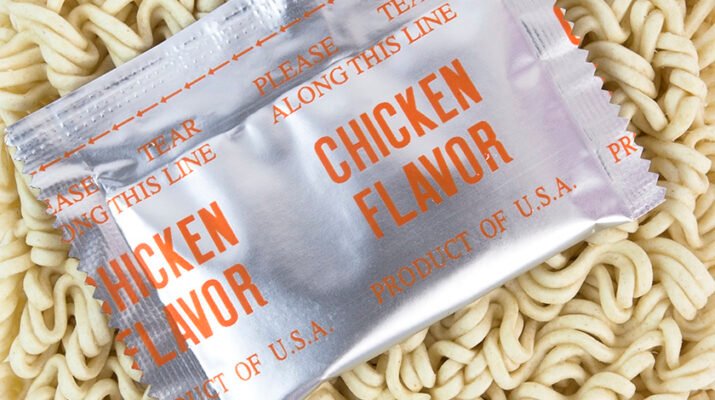New study shows instant noodles may be harmful to reproductive and cardiovascular health
By Amanda Jowsey
Quick, cheap and filling food is oftentimes our go-to as Americans. Life demands our constant effort and attention, so we often let the nutritional choices we make fall by the wayside.
Instant noodles, notoriously eaten in excess by financially starved young adults, can be found in almost every pantry.
New research published in the “Journal of Nutrition” shows that this beloved meal-like snack can have some alarming adverse health effects.
The study, done by the Baylor College of Medicine, shows that eating instant noodles, like Ramen, two or more times a week, is linked to an increased risk for cardiometabolic syndrome, which raises the risk of heart disease, diabetes and stroke.
These results were more prevalent among women, most likely due to biological differences in sex hormones and metabolism.
More alarmingly, it shows that the bisphenol A (BPA) present in the polystyrene foam packaging of some brands of these products may be causing hormonal imbalances in women.
BPA interferes with the way hormones, specifically the sex hormone estrogen, sends messages throughout the body. BPA can essentially mimic estrogen and interact with estrogen receptors, leading to changes that can contribute to cancer development and progression.
BPA is shown to interfere with enzymes essential to produce estradiol, the primary form of estrogen in the body during reproductive years. One recent Harvard study found a connection between fewer fertile eggs in women who had higher levels of BPA in their urine.
Thinking about all the young female college students eating packs and packs of these on a budget has frightening implications. Are we all just destined for reproductive harm or cancer?
Baylor’s primary investigator on the study, physician Hyun Joon Shin, said that the study indicates how important it is for us to make conscious and informed choices about the food we put into our bodies.
“This research is significant since many people are consuming instant noodles without knowing possible health risks,” Shin said. “My hope is that this study can lay a foundation for future research about the health effects of instant noodle consumption.”
Emily Wood, dietitian and plant-based nutrition coordinator from Niagara Falls, has more than 14 years’ experience with a specialty in plant-based nutrition. She works for the T. Colin Campbell Center for Nutrition Studies, part of Cornell University in Ithaca and has a passion for helping others deepen their knowledge of plant-based nutrition and offering support for those focused on this area of their health-related practices.
She’s also a mom of three and shared her best tips for avoiding the health risks associated with overly processed and packaged foods like instant noodles.
“Plan ahead. Planning decreases your chance of eating something out of convenience that is unhealthy and reduces food waste. I always have a grocery list on the counter, so as I think of dinner ideas or run out of staple foods, I put it right on the list,” she said. “Also, the biggie and probably most obvious, minimize eating out as much as possible. Eating out is not only more expensive than ever, but [according to an article in Nutrients Magazine,] a higher rate of eating out of the home is linked to poorer diet quality, higher intakes of fat, sugar, and sodium, and lower intakes of fiber and micronutrients.”
The CDC recently released some helpful tips for eating healthy on a budget. The top two suggestions: Meal planning and sticking to fresh, frozen, or canned goods instead of prepackaged instant-ready food which is more expensive and provides less nutritional value.
Using meal planning apps and shopping apps like Instacart can also be helpful. Even if you don’t purchase through the app, it’s still helpful to have a visual reminder of options while you’re prepping for the week.

